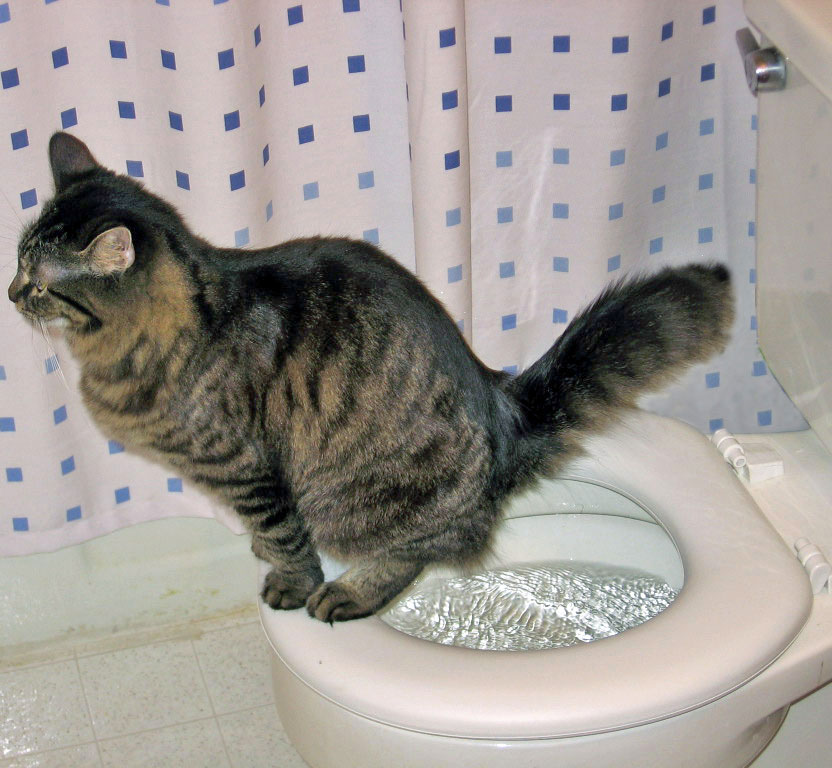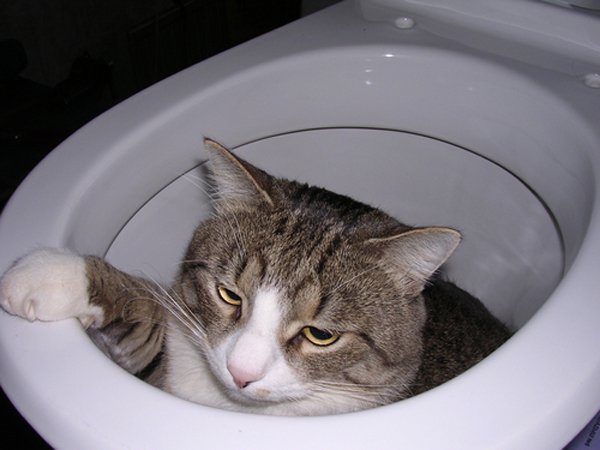What're your insights and beliefs about Can You Flush Cat Poop Down The Toilet??

Introduction
As feline proprietors, it's vital to bear in mind how we deal with our feline pals' waste. While it might seem convenient to purge cat poop down the commode, this practice can have detrimental consequences for both the environment and human wellness.
Alternatives to Flushing
Fortunately, there are much safer and a lot more accountable ways to take care of feline poop. Take into consideration the complying with alternatives:
1. Scoop and Dispose in Trash
One of the most typical method of dealing with pet cat poop is to scoop it into a biodegradable bag and throw it in the garbage. Make sure to make use of a specialized clutter scoop and take care of the waste quickly.
2. Use Biodegradable Litter
Go with naturally degradable feline clutter made from materials such as corn or wheat. These trashes are eco-friendly and can be securely gotten rid of in the garbage.
3. Hide in the Yard
If you have a backyard, consider burying cat waste in a designated area away from vegetable gardens and water sources. Be sure to dig deep enough to prevent contamination of groundwater.
4. Install a Pet Waste Disposal System
Invest in a pet waste disposal system especially made for pet cat waste. These systems utilize enzymes to break down the waste, minimizing smell and ecological effect.
Health and wellness Risks
In addition to environmental problems, flushing cat waste can additionally present health threats to people. Pet cat feces may contain Toxoplasma gondii, a bloodsucker that can cause toxoplasmosis-- a possibly severe health problem, specifically for expecting women and individuals with weakened immune systems.
Ecological Impact
Purging pet cat poop introduces hazardous virus and bloodsuckers right into the water system, presenting a substantial danger to marine communities. These impurities can adversely influence marine life and compromise water quality.
Conclusion
Accountable animal ownership prolongs beyond offering food and shelter-- it also involves proper waste management. By avoiding purging feline poop down the toilet and choosing alternative disposal approaches, we can lessen our environmental footprint and shield human health and wellness.
Why Can’t I Flush Cat Poop?
It Spreads a Parasite
Cats are frequently infected with a parasite called toxoplasma gondii. The parasite causes an infection called toxoplasmosis. It is usually harmless to cats. The parasite only uses cat poop as a host for its eggs. Otherwise, the cat’s immune system usually keeps the infection at low enough levels to maintain its own health. But it does not stop the develop of eggs. These eggs are tiny and surprisingly tough. They may survive for a year before they begin to grow. But that’s the problem.
Our wastewater system is not designed to deal with toxoplasmosis eggs. Instead, most eggs will flush from your toilet into sewers and wastewater management plants. After the sewage is treated for many other harmful things in it, it is typically released into local rivers, lakes, or oceans. Here, the toxoplasmosis eggs can find new hosts, including starfish, crabs, otters, and many other wildlife. For many, this is a significant risk to their health. Toxoplasmosis can also end up infecting water sources that are important for agriculture, which means our deer, pigs, and sheep can get infected too.
Is There Risk to Humans?
There can be a risk to human life from flushing cat poop down the toilet. If you do so, the parasites from your cat’s poop can end up in shellfish, game animals, or livestock. If this meat is then served raw or undercooked, the people who eat it can get sick.
In fact, according to the CDC, 40 million people in the United States are infected with toxoplasma gondii. They get it from exposure to infected seafood, or from some kind of cat poop contamination, like drinking from a stream that is contaminated or touching anything that has come into contact with cat poop. That includes just cleaning a cat litter box.
Most people who get infected with these parasites will not develop any symptoms. However, for pregnant women or for those with compromised immune systems, the parasite can cause severe health problems.
How to Handle Cat Poop
The best way to handle cat poop is actually to clean the box more often. The eggs that the parasite sheds will not become active until one to five days after the cat poops. That means that if you clean daily, you’re much less likely to come into direct contact with infectious eggs.
That said, always dispose of cat poop in the garbage and not down the toilet. Wash your hands before and after you clean the litter box, and bring the bag of poop right outside to your garbage bins.
https://trenchlesssolutionsusa.com/why-cant-i-flush-cat-poop/

I discovered that blog post about Can You Flush Cat Poop Down The Toilet? when scouting around the internet. I beg you take the time to distribute this article if you appreciated it. Thanks for going through it.
Schedule Service Pickup